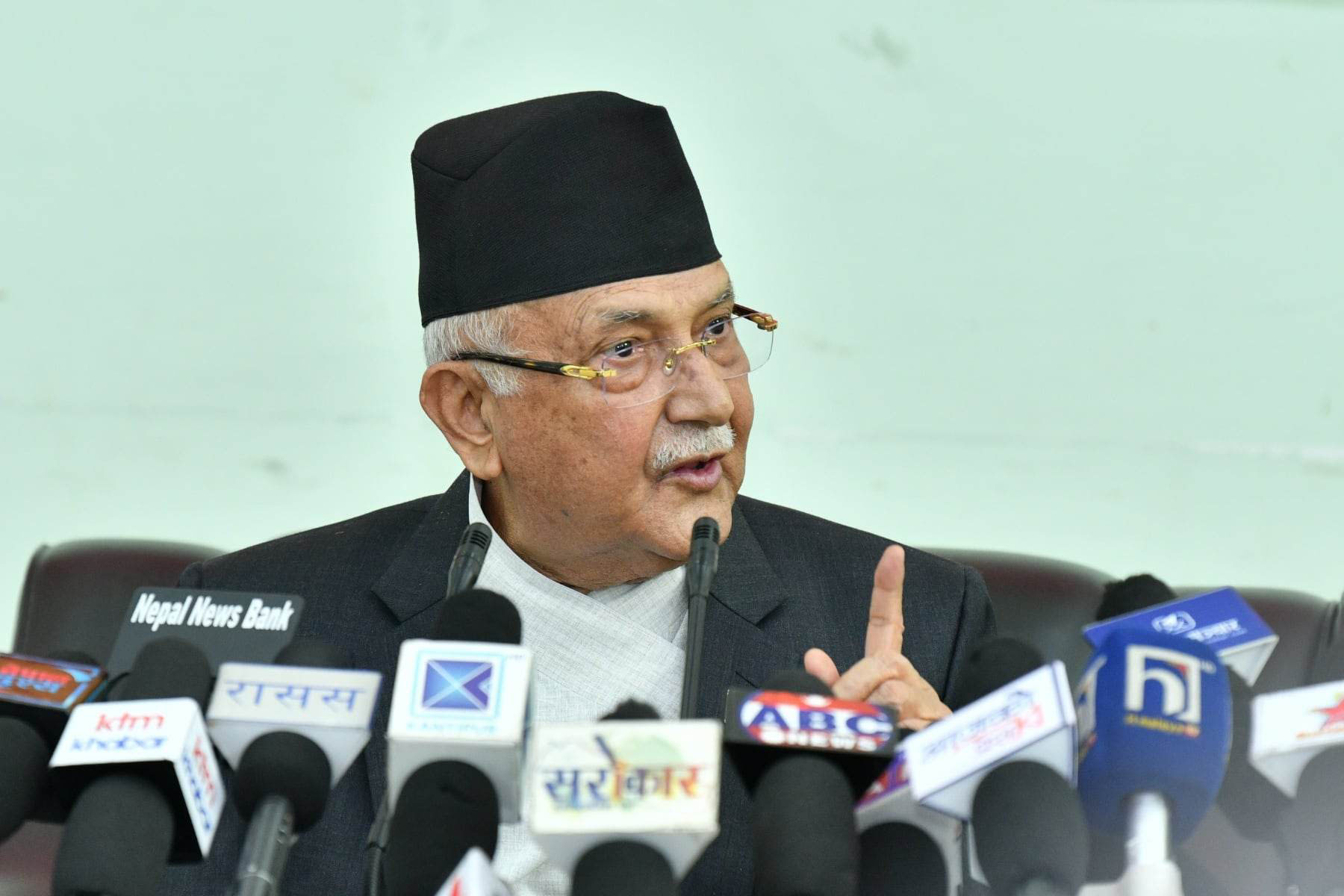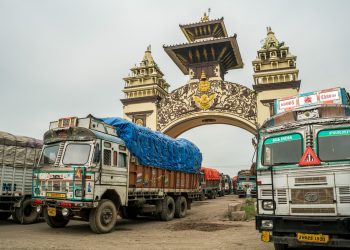KATHMANDU: CPN-UML KP Oli’s activism in preventing the fragmentation of fringe parties, seeking retribution, and safeguarding cooperatives has remained pivotal.
However, his refusal to probe Rastriya Swatantra Party (RSP) Chairman and Home Minister Rabi Lamichhane has led to a parliamentary deadlock, casting doubts on his coalition partners.
Oli’s maneuvers, including splitting the Upendra Yadav-led Janata Samajwadi Party (JSP) and drawing his attention towards Madhav Nepal’s Unified Socialist Paryt, are fracturing the political landscape, leaving the government grappling for stability rather than strength.
Prime Minister Pushpa Kamal Dahal Prachanda also fears Oli’s ascension to a dominant party, potentially usurping the premiership.
Following the enactment of the new constitution, the UML-Maoist coalition government secured a significant majority.
Yet, within three and a half years, the once-popular Nepal Communist Party (NCP) government fell amidst Oli’s two successive topples of the majority government, plunging the nation into political turmoil and uncertainty.
Despite Oli’s attempts to recalibrate alliances, the durability of the current government remains uncertain.
Concurrently, provincial tensions are escalating, with some provinces witnessing government upheavals.
Furthermore, the decision-making process surrounding Giribandhu’s land lease was mired in controversy, including the removal of a secretary from the Land Reform Ministry who opposed the proposal.
It’s increasingly evident that Oli’s actions are exacerbating instability, leaving the country adrift.
His recent political maneuvers have amplified discontent among the populace, with analysts positing that Oli’s strategy is fixated on perpetuating instability to bolster his own position, observers note.
Experts argue that Oli is leveraging this turbulence to expand his party’s influence and secure governance, exacerbating distrust within the ruling coalition and fueling speculation of an imminent power shift.
Meanwhile, Oli himself faced scrutiny this week, particularly in light of the full disclosure of the Supreme Court’s decision regarding the land of Giribandhu Tea Estate in Jhapa.
While Oli was not implicated in the Giribandhu verdict, questions arose due to his active involvement in policy decisions concerning the estate.
In 2019, during Oli’s tenure as Prime Minister, the government amended the Land Act to allow Giribandhu to lease land for tea plantation, ostensibly for recruitment purposes.
However, allegations of political corruption surfaced, suggesting that a minister in Oli’s cabinet received financial benefits for facilitating the decision, with some reports indicating the purchase of a house in Kathmandu using these proceeds.
Furthermore, the decision-making process surrounding Giribandhu’s land lease was mired in controversy, including the removal of a secretary from the Land Reform Ministry who opposed the proposal.
Teknarayan Pandey, who assumed the role of Land Reform Secretary and later became Home Secretary, is currently incarcerated in the fake Bhutanese case.
The decision to sell Giribandhu’s land, purportedly influenced by brokers in Jhapa, raised significant funds, some of which allegedly financed the UML convention in Chitwan.
This turn of events left many hopeful landowners in Jhapa disillusioned and financially strained.
Critics argue that the government’s decision during Oli’s tenure contradicted the intended purpose of land laws, a stance upheld by the Supreme Court.
Will the government prosecute those who amassed funds under the guise of Giribandhu or seek legal loopholes to enable land sales? The forthcoming actions of the government remain uncertain.
However, the Constitutional Bench’s ruling precludes any constitutional review of this decision, leaving the matter fraught with ethical and legal implications.
In January, the court mandated the government to confiscate excess land of Giribandhu Tea Estate land case.
However, before the verdict’s full text came out, CPN-UML Chairman KP Oli and Prime Minister Pushpa Kamal Dahal Prachanda issued an ordinance under the guise of an investment convention.
This move, experts note, was aimed at amending sections of the Land Act, allowing those with excess land to sell it.
Oli’s subsequent efforts to push this agenda hint at ulterior motives, but the Supreme Court’s ruling has effectively concluded this chapter.
The lingering question pertains to financial misconduct tied to the political decisions and restitution for affected individuals in the Giribandhu Tea Estate land case.
In this case, will the government probe the corruption surrounding Giribandhu tea Estate land issue, a case of greater magnitude than the Baluwatar land issue?
Prime Minister Dahal and Home Minister Rabi Lamichhane now face scrutiny.
Will the government prosecute those who amassed funds under the guise of Giribandhu or seek legal loopholes to enable land sales? The forthcoming actions of the government remain uncertain.









Comment